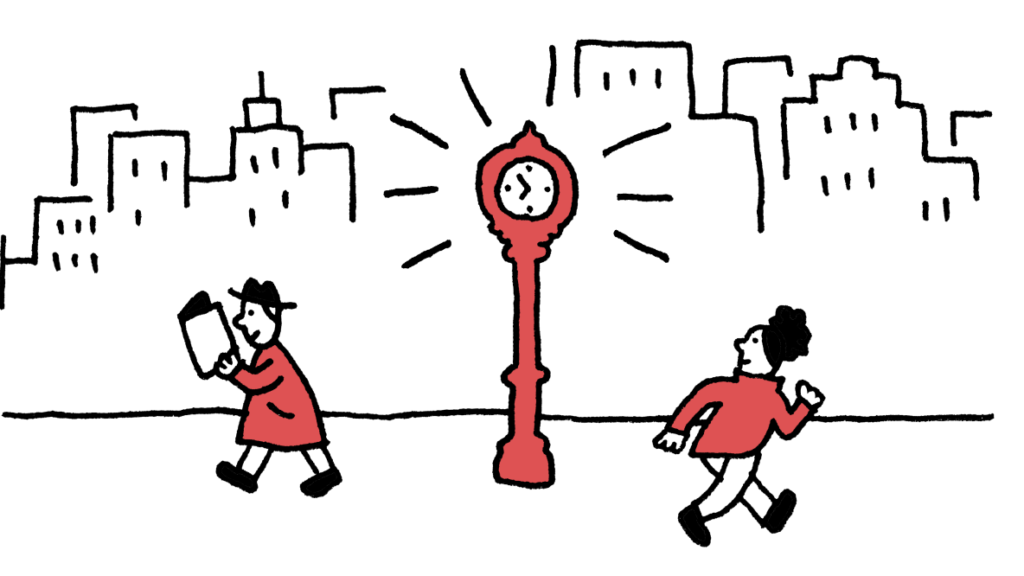As The New Yorker turns a hundred, we asked Zadie Smith, Jhumpa Lahiri, and Ottessa Moshfegh to compose new stories that were, in some way, inspired by fiction from the magazine’s past. Each new piece is accompanied by a “Take” from the author about the work that inspired her. Plus:
June 17 & 24, 2002
Grace Paley’s “My Father Addresses Me on the Facts of Old Age”
The author on the work of fiction that inspired her story “The Silence.”
By Zadie Smith
It’s hard to overstate how startled I was upon first reading Grace Paley. At the time, I’d never really given a lot of thought to stories. I didn’t come across them much during my education—aside from a few Sherlock Holmes tales and too much Somerset Maugham. My idea of the form was very distorted. Neat little British packages tied up with a tight bow. Airless. I was unfamiliar with the more formally inventive American tradition, or the fact that there were any magazines or journals that published short fiction. (The first time I saw a copy of The New Yorker was when it published me.) Reading “My Father Addresses Me on the Facts of Old Age” in the early years of a new century was genuinely transformative. No twists or moralizing. Not much stately third person. No neat scenes. Not really any scenes at all. Just a loosey-goosey human voice coming at you, going wherever it wanted, arguing, joking, dramatizing, romanticizing, politicking. A working-class voice. A neighborhood voice.
Keep reading »
Editor’s Pick
Photo illustration by Stephen Doyle
“The Silence,” By Zadie Smith
Smith’s story—about a woman who becomes enveloped in a type of silence that “gets planted within you sometime in the middle of your life”—was inspired by Grace Paley’s story “My Father Addresses Me on the Facts of Old Age,” which was published in The New Yorker in 2002. Read “The Silence” »
More Top Stories
How Bad Is It?
The Senate will begin voting on the G.O.P.’s “Big Beautiful Bill”—a huge tax-and-spending measure—today. If it passes, the legislation will affect the lives of millions of Americans. We asked John Cassidy, who writes a weekly column on economics and politics, what the implications of its passage would be.
Q: How bad is the legislation?
Cassidy: Tough to answer that briefly, but let’s just note that it’s highly regressive—it could deprive millions of low-income Americans of health insurance through the proposed cuts to Medicaid, and it would add trillions of dollars to the national debt. That’s quite a double whammy.
What do you mean by “regressive”?
Well, the nonpartisan Congressional Budget Office recently did an analysis of the House Republicans’ version of the bill, which is pretty similar to the one in the Senate. This analysis found that households in the richest ten per cent of the income distribution would gain the equivalent of about $12,000 a year, whereas households in the bottom ten per cent would lose about $1,600 a year. That’s reverse Robin Hood.
If it’s such an unattractive bill for the majority of Americans, how are the Republicans and the White House trying to sell it politically?
Donald Trump, whatever you think of him, isn’t politically stupid. During last year’s election campaign, he promised to eliminate federal income taxes on overtime or tips and on social-security payments—two ideas aimed at ordinary Americans. The tips-and-overtime proposal is included in the G.O.P bill. And, while the social-security provision isn’t in there directly, there is a provision that would provide a tax deduction for seniors. So, these parts of the bill are basically sweeteners.
Premium IPTV Experience with line4k
Experience the ultimate entertainment with our premium IPTV service. Watch your favorite channels, movies, and sports events in stunning 4K quality. Enjoy seamless streaming with zero buffering and access to over 10,000+ channels worldwide.

















